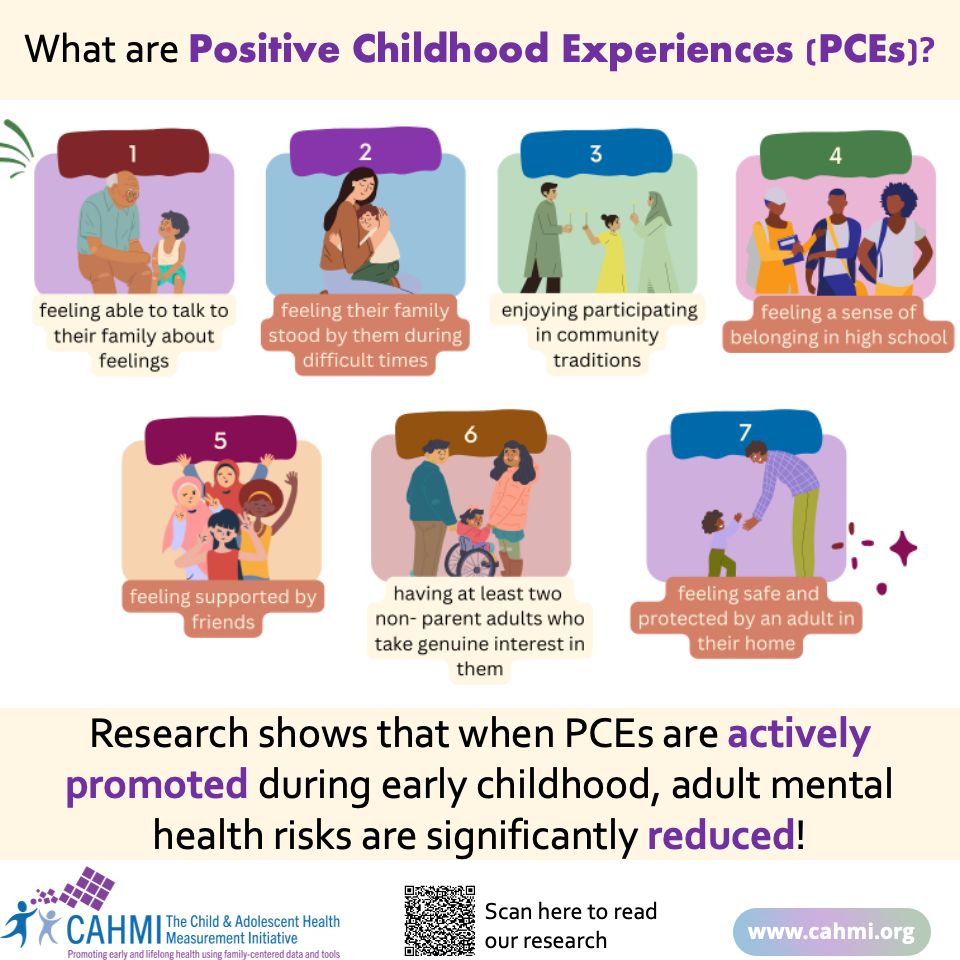Return On Investment: Why Investing In Childhood Mental Health Is Essential

Table of Contents
The Economic Benefits of Investing in Childhood Mental Health
Investing in childhood mental health isn't just altruistic; it's economically sound. The return on investment in this area is substantial, with significant cost savings and increased productivity as key outcomes.
Reduced Healthcare Costs in the Long Run
Early intervention in childhood mental health significantly reduces healthcare expenditures later in life. By addressing issues early, we prevent escalation into more severe conditions requiring costly hospitalizations, long-term medication, and specialized care. Studies have shown that for every dollar invested in early intervention programs for mental health, there's a significant cost savings of several dollars in future healthcare expenditure associated with treating more severe, adult-onset conditions.
- Early identification and treatment of anxiety disorders can prevent the development of more serious conditions like depression and substance abuse.
- Preventative programs focusing on building resilience and coping mechanisms significantly reduce the need for crisis intervention services.
- The cost-effectiveness of early intervention programs makes them a financially prudent investment for both individuals and society.
Increased Productivity and Economic Participation
Children who receive adequate mental health support are better equipped to succeed academically and professionally. Improved mental wellbeing translates into better school performance, higher graduation rates, and increased opportunities for higher education and employment. This, in turn, contributes to higher future earnings and greater economic productivity.
- Studies show a strong correlation between childhood mental health and future career success, with individuals demonstrating better job retention and higher earning potential.
- A mentally healthy workforce is a more productive workforce, leading to increased economic growth at both the individual and national level.
- Investing in childhood mental health is an investment in a stronger and more productive economy.
The Social Benefits of Investing in Childhood Mental Health
Beyond the economic gains, prioritizing mental health investment in children offers substantial social benefits. A society that supports the mental health of its youth is a healthier, safer, and more cohesive society.
Improved Educational Outcomes
Addressing mental health challenges in children directly impacts their ability to learn and thrive in school. By providing necessary support, we foster improved academic success, increased school performance, and higher graduation rates. This leads to a better-educated workforce and more informed citizenry.
- Early intervention can help children overcome learning difficulties stemming from anxiety, depression, or other mental health concerns.
- School-based mental health services provide timely access to support, reducing the disruption caused by mental health issues.
- Improved educational outcomes contribute to a more skilled and productive workforce, benefiting society as a whole.
Stronger Social Relationships and Reduced Crime Rates
Children with strong mental health are better equipped to form positive social relationships. This reduces the likelihood of aggressive behavior and antisocial tendencies, ultimately contributing to lower crime rates. Investing in mental health is therefore a crucial component of crime prevention.
- Mental health interventions can significantly reduce the incidence of violence and aggression amongst young people.
- Strengthening social and emotional learning skills equips children with the tools to navigate conflict and build healthy relationships.
- A supportive community environment promotes positive mental health, fostering social cohesion and reducing crime.
Enhanced Family Well-being
Supporting a child's mental health has a positive ripple effect on the entire family. By providing the necessary support, we reduce family stress, improve family relationships, and foster a more supportive and stable family environment.
- Parental mental health is often intertwined with the mental health of their children, making family-focused interventions crucial.
- Stronger family bonds lead to better child outcomes, with improved emotional regulation and academic performance.
- Investing in family support networks is essential for creating a supportive ecosystem for children's mental health.
The Individual Benefits of Investing in Childhood Mental Health
The individual benefits of childhood mental health investment are perhaps the most profound, creating a positive impact that lasts a lifetime.
Improved Mental and Physical Health
Early mental health support sets the stage for a lifetime of improved mental wellness and physical health. Addressing mental health issues early can reduce the risk of developing chronic illnesses such as cardiovascular disease, diabetes, and other conditions often linked to chronic stress. Investing in mental health is therefore an investment in lifelong wellbeing.
- Early intervention can significantly reduce the risk of developing long-term mental health conditions.
- Improved mental health is linked to better physical health outcomes, including reduced risk of chronic diseases.
- Investing in preventative mental health services contributes to a healthier population overall.
Increased Resilience and Self-Esteem
Early intervention programs focusing on building resilience and fostering positive self-confidence equip children with the skills and coping mechanisms to navigate life's challenges effectively. This leads to increased self-esteem, improved emotional resilience, and a greater sense of self-efficacy.
- Building self-esteem and coping mechanisms empowers children to face adversity and build strong mental fortitude.
- Resilient individuals are better equipped to manage stress, overcome challenges, and thrive in life.
- Investing in emotional resilience enhances children’s ability to face future challenges with confidence and strength.
Investing in a Brighter Future: The Importance of Childhood Mental Health Investment
In conclusion, the benefits of investing in childhood mental health are undeniable. The return on investment is substantial, encompassing significant economic gains, enhanced social well-being, and profound individual benefits. Neglecting childhood mental health has long-term and far-reaching consequences, impacting individuals, families, and society as a whole. We must prioritize mental health initiatives that support children and their families, ensuring access to quality mental healthcare and preventative programs. Support initiatives promoting childhood mental health investment, advocate for policy changes that increase funding for mental health services, and reach out to those who need support – let's create a brighter future for our children by prioritizing their mental health. Investing in their mental health is investing in a healthier, more prosperous future for all.

Featured Posts
-
 Alastthmar Fy Aljbht Alwtnyt Rwyt Jdydt Lwrqt Syasat Aqtsadyt
May 03, 2025
Alastthmar Fy Aljbht Alwtnyt Rwyt Jdydt Lwrqt Syasat Aqtsadyt
May 03, 2025 -
 Saturday April 12th Lotto Jackpot Results
May 03, 2025
Saturday April 12th Lotto Jackpot Results
May 03, 2025 -
 Play Station Beta Program Requirements And How To Apply
May 03, 2025
Play Station Beta Program Requirements And How To Apply
May 03, 2025 -
 Preoccupations De Macron Militarisation De L Aide Humanitaire A Gaza Par Israel
May 03, 2025
Preoccupations De Macron Militarisation De L Aide Humanitaire A Gaza Par Israel
May 03, 2025 -
 Lotto 6aus49 Gewinnzahlen Des Mittwochs 9 4 2025
May 03, 2025
Lotto 6aus49 Gewinnzahlen Des Mittwochs 9 4 2025
May 03, 2025
